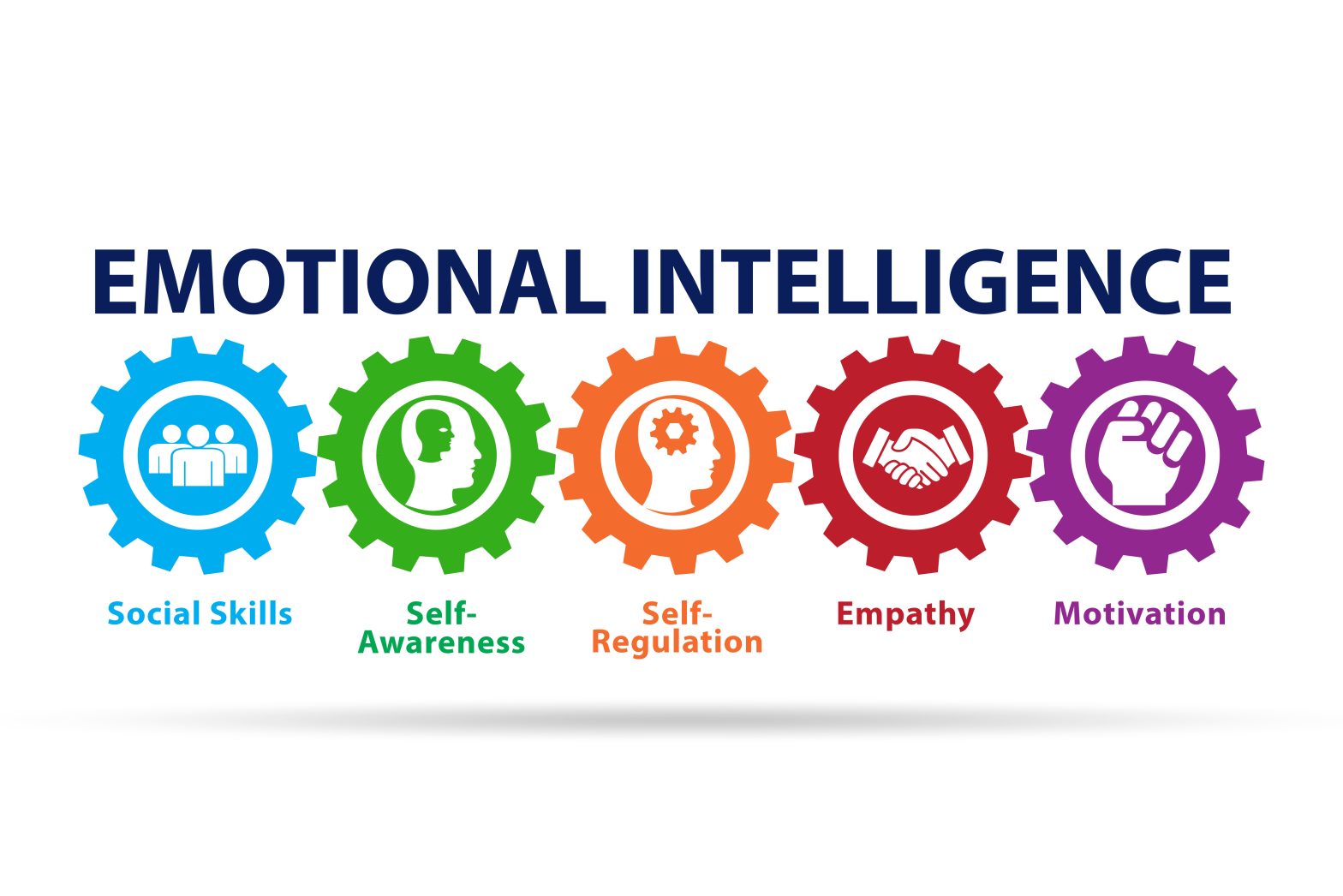👥 Leadership Insights: “Building Emotional Intelligence in Teams”
Emotional intelligence (EI) is crucial for effective leadership and team cohesion. High EI within a team leads to better communication, enhanced collaboration, and improved overall performance. Here, we share actionable tips for fostering emotional intelligence within your team.
Understanding Emotional Intelligence
Emotional intelligence refers to recognising, understanding, managing, and influencing emotions in ourselves and others. It comprises five key components:
- Self-Awareness: Recognising and understanding your own emotions.
- Self-Regulation: Managing and controlling your emotional responses.
- Motivation: Using emotions to stay focused on goals.
- Empathy: Understanding and sharing the feelings of others.
- Social Skills: Managing relationships and building networks.
The Importance of EI in Teams
Teams with high emotional intelligence:
- Communicate more effectively.
- Resolve conflicts amicably.
- Exhibit higher levels of trust and collaboration.
- Adapt better to change.
- Show greater overall performance.
Here are some practical and actionable tips for building emotional intelligence in your team:
- Promote Self-Awareness
- Encourage team members to reflect on their emotions and behaviours.
- Use tools like journaling or mindfulness exercises.
- Provide feedback that helps team members understand how others perceive them.
- Foster Open Communication
- Create a safe space for open dialogue about emotions and challenges.
- Encourage active listening and validate others’ feelings.
- Hold regular team check-ins to discuss emotional well-being.
- Develop Empathy
- Encourage team members to see situations from others’ perspectives.
- Implement team-building exercises that promote understanding and empathy.
- Highlight the importance of empathy in everyday interactions.
- Enhance Self-Regulation
- Teach techniques for managing stress and controlling emotional responses, such as deep breathing or time-outs.
- Encourage a culture where pausing before reacting is valued.
- Provide training on conflict resolution and emotional regulation.
- Motivate with Purpose
- Help team members connect their personal goals with the team’s objectives.
- Recognise and celebrate achievements regularly to keep morale high.
- Foster a positive work environment that motivates through encouragement and support.
- Strengthen Social Skills
- Promote collaborative projects that require teamwork and communication.
- Organise social events to strengthen relationships outside of work tasks.
- Provide training on effective communication, negotiation, and leadership skills.
- Lead by Example
- Demonstrate emotional intelligence in your leadership style.
- Show vulnerability and authenticity by sharing your own emotional experiences.
- Model behaviours such as empathy, active listening, and calm under pressure.
Implementing EI in Daily Practices
- Regular Training and Workshops
- Organise regular training sessions focused on building emotional intelligence.
- Invite experts to conduct workshops on relevant EI topics.
- Create Support Systems
- Establish peer support groups where team members can share experiences and advice.
- Encourage mentorship programs that focus on developing emotional intelligence.
- Incorporate EI into Performance Reviews
- Include emotional intelligence as a criterion in performance evaluations.
- Provide constructive feedback on areas of improvement related to EI.
- Leverage Technology
- Use EI assessment tools to measure and track progress.
- Implement communication platforms that support transparency and feedback.
Building emotional intelligence within your team is an investment that yields substantial returns. Fostering a culture that values self-awareness, empathy, and effective communication can enhance team cohesion, performance, and overall satisfaction. Start implementing these actionable tips today to transform your team dynamics and lead with emotional intelligence.
If you enjoyed this, you might like to subscribe to our newsletter, visit our YouTube Channel or Podcast or read our latest work.
